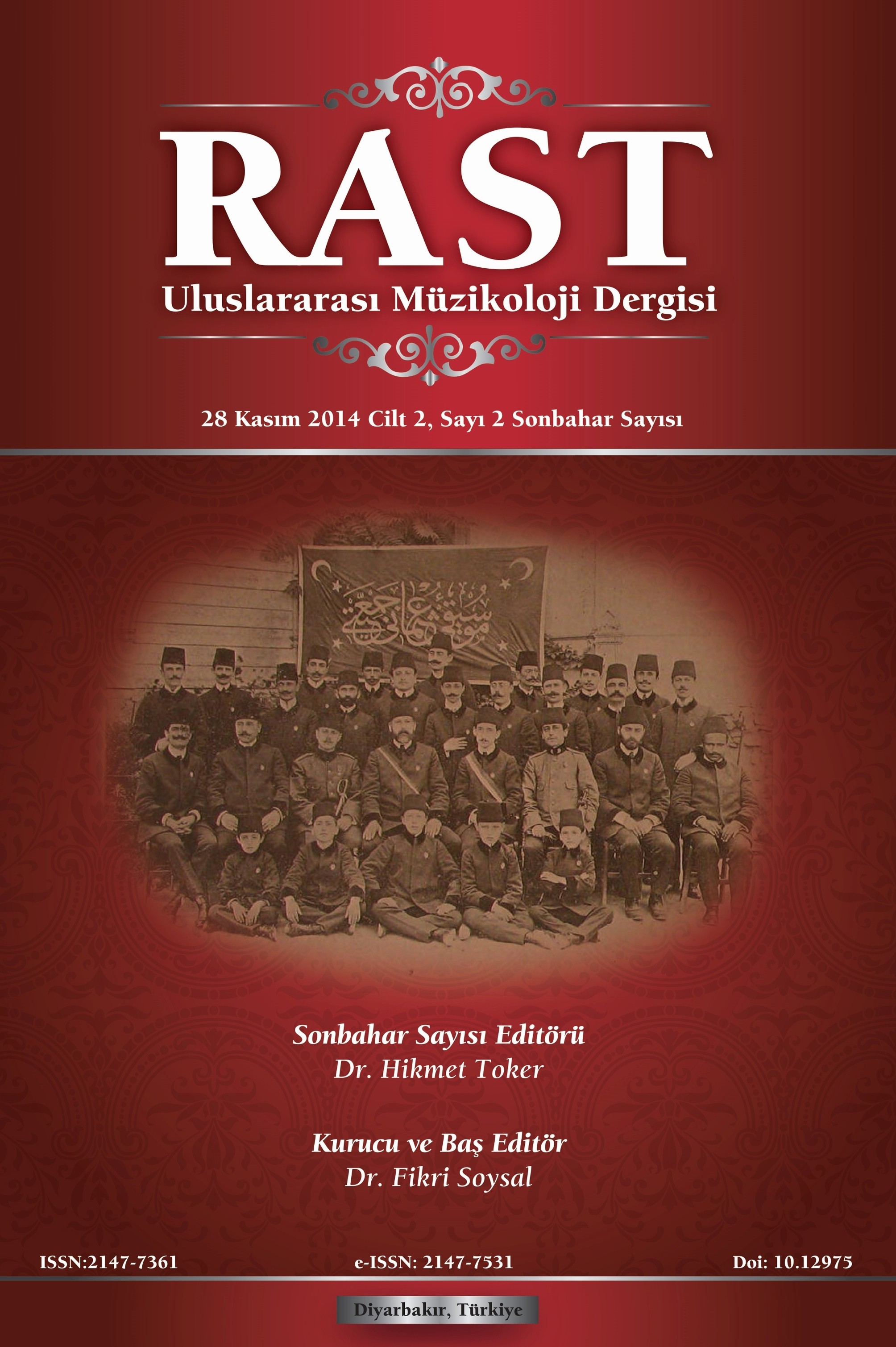
Rast Müzikoloji Dergisi
Yazarlar: Yalçın ÇETİNKAYA
Konular:Sosyal
Anahtar Kelimeler:Ikhwan es-safa,Music and cosmos,Tunes of planets,Pythagoras
Özet: In the history of Islamic thought, the Ikhwan es-Safa is considered a very distinctive school due both to its origin, and its system. Founded in Basra, the full name of this school of thought was İhvân es-Safâ and Hullân el-Vefâ and Ehl el-Hamd and Ebnâ el-Mecd. The name Ikhwan es-Safa had been used by a group of independent philosophers (libres penseurs), who were tirelessly involved in science and philosophy, if not directly for their sake, but with the hope of building a kind of moral-spiritual community, where the heterogenic Islamic state elite can take refuge away from the wide-spread conflicts among religious groups, national societies and Muslim sects. The most important work of the Ikhwan es-Safa is the encyclopedia-like “Epistles (Risaleler)”. It is evident from the Epistles that the “Brothers of Purity and Loyal Friends” are brothers, each of whom are “pure souls, and they believe in and remain faithful to every sign”. Having emerged during the reign of the Buyids in Basra, Ikhwan es-Safa was a secret philosophical-religious society. Although the Ikhwan had claimed that they had been the 10th Century representatives of the Pythagorean school and that they had followed him in various sciences, it is possible to say that especially in the area of music, they established an idea of music, and a “musical way of thinking” by combining their own thoughts in music with the musical thinking and experiences that occurred and were developed starting from the B.C 6th Century of Pythagoras until their own era. This claim is based on the musical texts found in the Epistles (Risaleler) where we understand that they had taken especially the relationship of music and cosmos that Pythagoras started, so much further. In their fifth epistle of their encyclopedical work, the Epistles (Risaleler), the Ikhwan es-Safa likens the movement of planets and the sound they make as they move to the tune of Oud (Ud), and informs that the four strings of Oud (Ud) correspond to the four main elements of nature, that is earth, air, water, and fire. Claiming that the movements of planets are like the tunes of Oud, and the four strings of Oud correspond to the four main elements of nature, that is earth, air, water, and fire are conceptions that are even today quite novel and exciting. However, I would like to bring to mind that these ideas of the Ikhwan es-Safa are generally inspired from their master Pythagoras’ sense and idea of the cosmos. That being said, the fact that the Ikhwan established these thoughts and interpretations of a relationship between music and cosmos over Oud, demonstrates that this particular idea and its form of expression are indeed authentic. This is because Oud was the most respected instrument in their region and within the Islamic musical circles in general both during and after the Ikhwan’s era. Oud is in a way a common instrument of Islamic musical culture and civilization. There is no such information in the sense of building such “music-cosmos” relationship neither in Pythagoras’ own sentiments, nor in the Pythagoreans from this school, nor in others until the Ikhwan es-Safa. It is possible to understand the Ikhwan’s claim on planets making tunes as they rotate via their knowledge of Pythagoras, since they acknowledge Pythagoras as their master, and their submission to his teachings, however, while being submitted to their master’s thoughts, they branch out from this particular notion by their own interpretation and description. Likening the tunes of planets (earths) as they rotate to the tunes of Oud is an example to that. The Ikhwan’s purpose in attributing such meanings to the tunes of Oud and its strings is to create a connection between the strings and the tune of Oud, with the existence, physical characteristics, and movements of the planets.